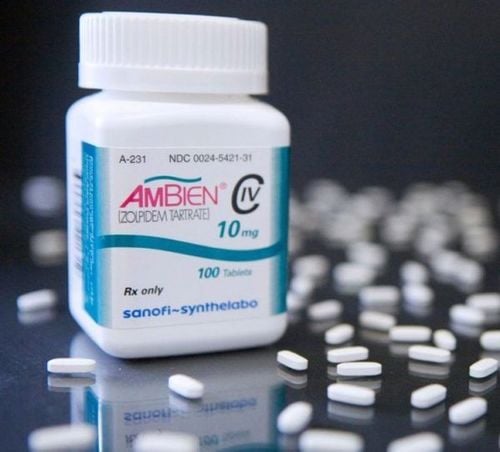This is an automatically translated article.
Generalized anxiety disorder also known as generalized anxiety disorder (GAD) is characterized by chronic, excessive, persistent and difficult-to-control anxiety that interferes with daily activities, even when have little or no impact factor.1. What is generalized anxiety disorder?
Generalized anxiety disorder (GAD) is characterized by chronic, excessive anxiety that is constant and difficult to control and interferes with daily activities, even with little or no predisposing factors. .2. Symptoms of GAD
Symptoms of control anxiety disorder include:Difficulty concentrating Difficulty sleeping Irritability Fatigue and exhaustion Muscle tension Recurring abdominal pain or diarrhea Vibrating sweating Tachycardia Neurological symptoms, like numbness or itching in parts of the body

Rối loạn lo âu tổng quát đặc trưng bởi lo âu mãn tính
3. Diagnosis of Generalized Anxiety Disorder
Doctors and psychiatrists will use methods to diagnose general anxiety disorder such as:Ask detailed questions about symptoms and medical history Use psychological questionnaires to help confirm the diagnosis Diagnosis Based on symptoms in the Diagnostic and Statistical Manual of Mental Disorders (DSM-V) of the American Psychiatric Association, including: Excessive worry for at least 6 months Difficulty controlling anxiety. Anxiety is associated with three or more of the following symptoms for at least 6 months: Restlessness, feeling tense or irritable. Easily fatigued Difficulty concentrating or mind going blank, irritable Muscle tension Sleep disturbances Irritability Anxiety resulting in significant distress or impairment in social and occupational areas Anxiety not due to any any physical cause?

Rối loạn lo âu tổng thể có thẻ được điều trị hiệu quả bằng liệu pháp tâm lý
4. Treatment of generalized anxiety disorder
Treatment decisions are based on how the generalized anxiety disorder affects the ability to function in daily life. The two main treatments for generalized anxiety disorder are psychotherapy and medication. Patients may benefit most from a combination of the two. It can take some trial and error to figure out which treatment works best for each patient.Psychotherapy
Also known as talk therapy or psychological counseling, to reduce symptoms of anxiety. Cognitive behavioral therapy is considered the most effective form of psychotherapy for generalized anxiety disorder.
As a short-term treatment, cognitive behavioral therapy focuses on teaching specific skills to directly manage anxiety and help patients gradually return to activities avoided because of anxiety . Through this process, symptoms will improve as the patient builds on initial success.
Drug use
Antidepressants include drugs from the class of selective serotonin reuptake inhibitors (SSRIs) and the classes of serotonin-norepinephrine reuptake inhibitors (SNRIs), which are treatments with the first drug, response rates range from 30% to 50%.
This class of drugs includes Escitalopram (Lexapro), Duloxetine (Cymbalta), Venlafaxine (Effexor XR), and Paroxetine (Paxil, Pexeva).
Buspirone is a non-benzodiazepine that does not cause dependence. Less sedating than benzodiazepines and no tolerance at therapeutic doses. There is a slow treatment effect from 2 to 3 weeks, the use is limited.
All medications should be tolerated slowly and continued for at least 4 weeks to determine effectiveness. Once symptoms are under control, the drug should be used for at least 12 months before the dose is reduced.
In some cases, your doctor may prescribe benzodiazepines to relieve symptoms of anxiety, such as diazepam and clonazepam. These sedatives are usually only used for short-term acute anxiety relief. Because they can be addictive, these drugs are not a good choice when the patient has a history of alcoholism or drug use.
Using the drug can lead to side effects such as weight gain, hyperlipidemia. Therefore, patients need to be monitored for timely treatment.
Psychological Clinic - Times City International General Hospital is one of the leading prestigious addresses in the treatment of psychological and mental health problems. The medical team at the clinic are highly specialized, many of whom are lecturers of psychiatry at Hanoi Medical University, capable of implementing psychological tests, in-depth psychotherapy, and providing support. effective aid in the treatment of diseases.
Please dial HOTLINE for more information or register for an appointment HERE. Download MyVinmec app to make appointments faster and to manage your bookings easily.
References: healthline.com, ncbi.nlm.nih.gov












